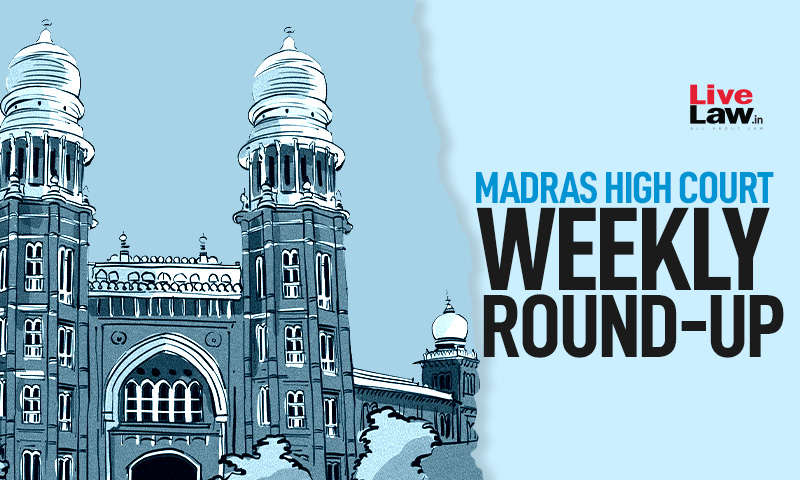Madras High Court Weekly Round-Up: September 18 To September 24, 2023
Upasana Sajeev
25 Sept 2023 10:00 AM IST

Next Story
25 Sept 2023 10:00 AM IST
Citations: 2023 LiveLaw (Mad) 271 To 2023 LiveLaw (Mad) 277 NOMINAL INDEX EDAC Engineering v. Industrial Fans (India) Pvt Ltd, Application Nos 2080 and 4609 of 2021, 2023 LiveLaw (Mad) 271 Dr. V. Kalanidhi v State of Tamil Nadu, 2023 LiveLaw (Mad) 272 SV v. MR, 2023 LiveLaw (Mad) 273 Selvam v State, 2023 LiveLaw (Mad) 274 Mariappan v Inspector of Police, 2023 LiveLaw...
